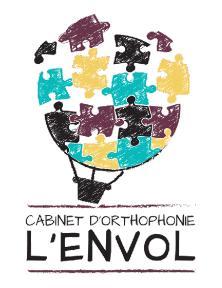
RESOURCES

NOM DE LA FORMATION
L’orthopédagogue est un pédagogue spécialisé dans le domaine des sciences de l’éducation qui évalue et qui intervient auprès des apprenant·e·s.
Sont susceptibles de présenter, ou qui présentent, des difficultés d’apprentissage scolaire, en lecture, en écriture ou en mathématique, incluant les troubles d’apprentissage.
FAQs
A Speech Therapist is a member of a professional order and has reserved acts which allow him to evaluate the functions of language, voice and speech, to determine a treatment and intervention plan and to ensure its implementation. works with the aim of improving communication (source: professional code C-26 section 37, m).
The person who is a Language Stimulation Assistant can only stimulate language and speech with the aim of improving communication. This can be done according to a speech therapy intervention plan, drawn up by the speech therapist. This person cannot assess language and communication, nor establish an intervention plan.
No. Speaking two or more languages at home is not a risk factor for language development. In fact, it is recommended to maintain the language(s) used by people close to the child regardless of their condition, even if the language is not developing effectively.
A parent can consult the speech therapist if they are concerned about their child’s language and communication development at any time.
For more information on the signs to look out for, we invite you to consult this link:
https://www.ooaq.qc.ca/
A Speech Therapist evaluates the cognitive functions of language and communication, this includes skills related to learning in a neurodevelopmental approach. The Speech Therapist will offer follow-ups to improve the difficulties identified during the assessment.
The Specialized Private Teacher (aka Tutor) is an expert on the learning objectives in a school environment. Our Specialized Private Teachers offer follow-ups in order to meet academic expectations according to the student’s academic level.
In other words, the two professions are complementary; it is not uncommon for a student to benefit from both services simultaneously.
Yes. A Speech Therapist can provide services to people of all ages, including adults and seniors. For example, some people consult for communication difficulties following a concussion (craniocerebral trauma), a cardiovascular arrest (stroke), for voice difficulties (loss of voice, trauma to the level vocal cords), for stuttering, and even for work adaptations due to a history of learning difficulties (dyslexia, dysorthography, attention difficulties such as ADHD).
The Speech Therapist can also improve the communication of people who are hard of hearing or who have become deaf.
A Specialized Private Teacher conducts an assessment to identify learning strengths and challenges based on core academic subjects (reading, writing and mathematics). This evaluation provides an assessment that can make it possible to assess a student’s academic level or performance.
Specialized Private Teachers can certainly contribute to the development of the individualized intervention plan. The Specialized Private Teacher’s perspective makes it possible to establish fair objectives, taking into account the student’s current needs.
Yes. Telepractice intervention can be as effective as in person. However, the person’s profile must be taken into account and it is recommended to allow a trial period to ensure the client’s adaptation to this method. Telepractice can be used for preschool and school-age children and adults.
No. Speech therapy is accessible to everyone without a medical prescription. However, if you have private insurance for the reimbursement of your speech therapy consultations, we strongly recommend that you contact your company before the start of your follow-ups. Some insurers require a medical prescription for reimbursement.
No. Unfortunately, speech therapy sessions cannot be covered by RAMQ.
Your child may be eligible for certain allowances or tax credits from the provincial or federal government. Several criteria must be considered. We advise you to discuss this with your doctor, your Speech Therapist or any other health professional who works with your child.


